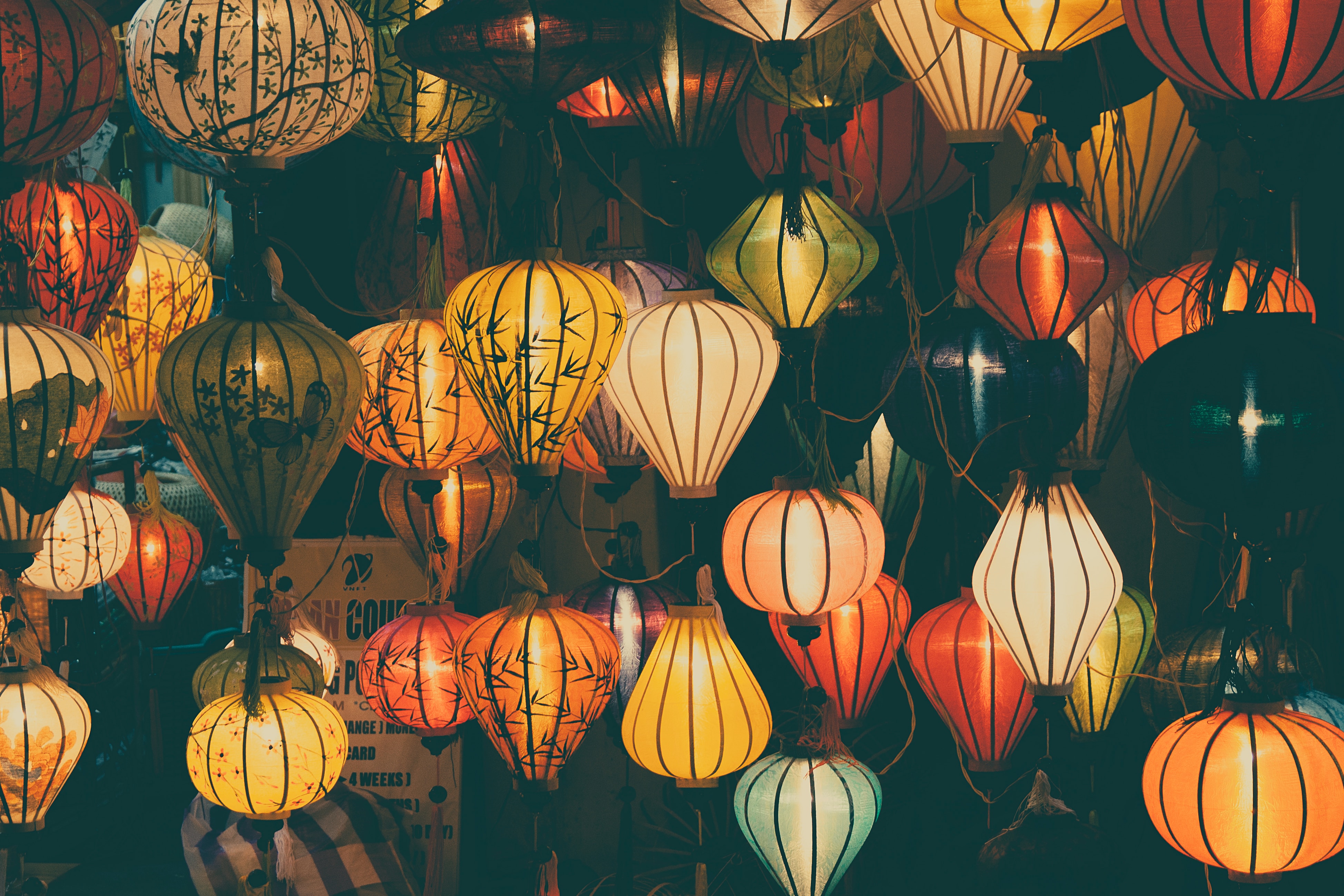
From discord to diversity
"Life is a balance between holding on and letting go" (Rumi).
And life can also be quite confusing. The many contradictions in a world that is becoming increasingly complex, dynamic and fast-paced can create a feeling of discrepancy and restlessness within us. For example, on the one hand, we should turn our attention and focus to our challenges, but at the same time learn to let go.
We should trust our fellow human beings and connect with them, but at the same time set ourselves apart and stand up for ourselves. We recognise these many similarities and parallels with others, as if we were all somehow the same, and yet we are so incomparably different.
Understandably, in all this confusion, we long for orientation, direction and boundaries. In order to navigate through this complexity and to position ourselves within it, we naturally think in categories and hierarchies.
Together is better than alone, faster is better than slow, and more is better than less. Good is only good and bad is only bad. This duality thinking is a sorting principle of our perception, and of course we would be overtaxing ourselves and our mental capacities if we were to differentiate everything down to the smallest detail at all times.
And yet sometimes a somewhat more balanced approach helps us to get out of our tightly closed thinking drawers, to grasp the opposites in their entirety and not get lost in the half-truth of simplicity. And perhaps we also realise that contradictory does not necessarily mean contradictory.
In this way, we create a connecting polarity from the separating duality.
So what can help us to recognise the equal value of the different forces and use their energies for our benefit?
Here are 3 ideas that might give us the impetus to step out of the "either/or" rut and connect the opposites of life with an "and":
1. Opposing forces can be found everywhere in and around us - and we always need both sides.
It can be enormously helpful to visualise what makes up the strength of the systems within us and around us, as they are inherently designed to do:
The human body itself contains many units that only form a functioning system through the interplay of their polarities. For example, our vegetative (autonomic) nervous system is divided into the opposing functional units of the sympathetic and parasympathetic nervous systems.
While the sympathetic part is responsible for activation, providing energy and increasing performance, the parasympathetic part brings us calm, relaxation and regeneration. Our body is only able to exchange information with our environment and return to homeostasis when the two units are intertwined and mutually balanced.
This also applies to our respiratory system and the interplay of O2 and CO2, the alternation of tension and relaxation of our muscle fibres, or our day and night rhythm.
If we go one level further outwards, to our relationship with our fellow human beings, we need the conscious time of contemplation and reflection, completely independently and with ourselves alone, as well as the time in connection and resonance with our fellow human beings. Only with this mixture can we draw on the full diversity of possibilities within and around us.
There are endless other examples of how everything in us, in nature and probably in the entire universe is built up from these polarities. From "Yin and Yang" - two terms from Chinese philosophy that we also use today in our western world to describe the two forces.
With yang for the progressive, for action, day, warmth, light, hardness, which is forward-looking and dynamic. Yin, on the other hand, for the conservative, for reaction, night, cold, darkness, softness, is backward-looking and sluggish.
Both forces are equal, and it is only through their opposite that the respective side is balanced - as the reciprocal points in the yin and yang symbol are also intended to illustrate.
2. if we take one side completely out of the equation, this leads to a dys-balance in the long or short term.
"Sunshine all the time makes a desert." as an Arabic proverb says.
In our tendency to favour certain qualities and exclude their opposite, we are in danger of getting too far out of balance. If one side is overemphasised for too long, this imbalance creates a lot of energy loss and friction.
The sympathetic, "yang" mode, i.e. being activated, focussed and performance-oriented, is often overemphasised compared to the parasympathetic, "yin" mode (relaxation, leisure, reflection) in the course of today's diverse challenges - with corresponding consequences for our health. This is because without counter-regulation via the parasympathetic nervous system, i.e. the "yin" energy, we lack balancing rest, digestion and regeneration on both a physical and mental level.
The negative effects of this imbalance in the nervous system, particularly on our immune system, are well known today.³
If we look at the hot/cold polarity, on the other hand, we tend to get very cosy and just want to be snug and warm - from home to the car, to the office and back again. Yet the alternation of hot and cold is so revitalising and regulating for our vascular system - a balance of contraction and dilation. Here too, many studies point to the health benefits of this interaction⁴.
You could go on and on with these examples - at the heart of it all is the balance between the different qualities.
3. Utilise the forces of polarities for yourself
Perhaps it will help us if we look at the image of a pendulum from time to time for different areas of life such as relationships, job, health, etc. and ask ourselves:
For this area, at what point am I currently along the spectrum?
What do I need right now, in this moment, and what do I need, individually? Which side of the balance do I need more of, which less?
You are also welcome to contact our REDEZEIT listeners to support you with these questions and/or simply listen empathically to where you are right now.
We should also be aware that a life in the extremes, no matter in which area, requires more energy input than if we move in the narrower spectrum around our centre. The high is followed in equal measure by a low and vice versa - just like a pendulum.
Of course, it would also be a shame to miss out on all of life's highs out of fear of a low. And of course we can't always choose what life throws at us, which side the pendulum swings to and with what intensity - but we are responsible for how we deal with it. And each time we learn how we can respond to certain movements in such a way that we can even utilise the momentum for ourselves and use it to shape our future path.
The bottom line is that life is not only about the "fun", sunny and pleasant sides, nor does it have to be. Deprivation, tension, renunciation, overcoming and setbacks on the one hand, hold rewards, relaxation, enjoyment, strengthening and learning in their hands on the other. Accordingly, living in diversity means a balanced life in which we are aware of this equation and utilise it in the best sense for ourselves and others.
Because life vibrates in all directions, never stands still and because each side has an inherent power, a special potential that we can utilise - along the entire spectrum of polarities.
A poem
Bookshelves are stacked with many guides to "happiness" but with many of them you ask yourself what questions do they address?
"How can I organise my life in such a way so that there is only room for "good" things? How can I manage everyday life in such a way so that all the "bad" disappears?"
Perhaps it is precisely this one-sidedness of hedonistic endeavour brings no rest, because life in all its diversity does not fit into a one-way street.
Perhaps it is time for other questions when the search for answers leads to dead ends because in doing so we venture in directions where new paths and answers can be found.
Maybe there is not only "good" and "bad" in life, and maybe the one also carries parts of the other? Perhaps it is often just right not to treat it so black and white?
Perhaps That each pole already carries the power of the other within itself and thus creates a constant oscillation in which the pendulum of life discharges.
Whether pleasure or lesson, Whether diligence or reward, Whether joyful togetherness, or alone in reflection time Only the balance of both brings that we succeed in living a life of diversity.
A life nourished by all facets, instead of being stuck in a corset of hedonism and thereby giving it the chance to really live it to the full.
Source:
² Srámek, P. et al. (2000). Human physiological responses to immersion into water of different temperatures
³ Lembke, Anna: Dopamine Nation: Finding Balance in the Age of Indulgence, 2021
⁴ Heinonen, Ikka and Laukkanen, Jari A. (2018). Effects of heat and cold on health, with special reference to Finnish sauna bathing

About the author
Tamara Drexler (29), a native of Passau and currently living in Berlin, is a prospective alternative practitioner for psychotherapy with a background in business administration.
After her studies (Business Administration and Economics) at the University of Passau with a semester abroad in San Diego, she first worked as a marketing manager in a medium-sized company in the region.
At the same time, there was always an inner whisper to give more attention to her enthusiasm for psychology professionally as well. This curiosity to better understand herself and her fellow human beings and to make connections led her to train as a non-medical practitioner for psychotherapy about 2 years ago.
Currently, she would like to expand her training and sharpen her focus areas through seminars, further training and internships after completing the examination in May 2022.
Professionally and privately, writing has always had a high priority as a creative channel. This includes poems (e.g. for birthdays, weddings and other special occasions), which she writes individually on request.
